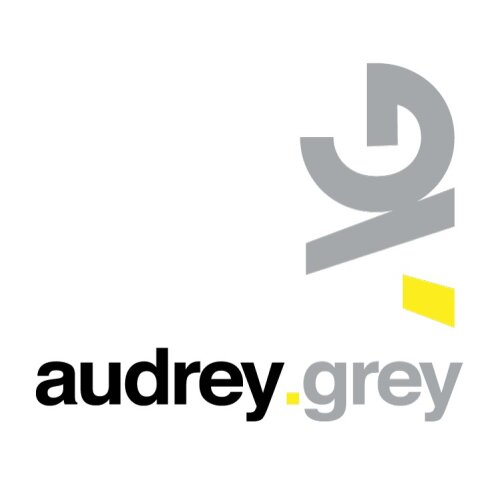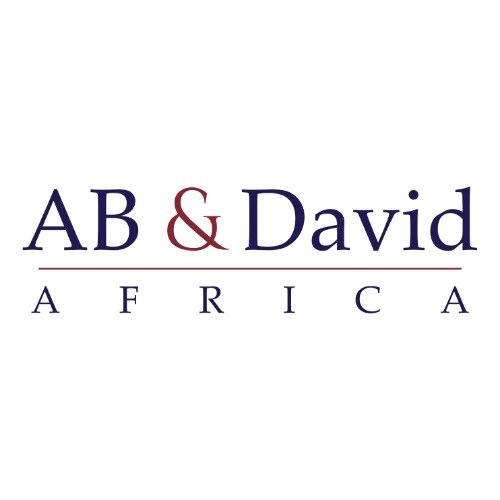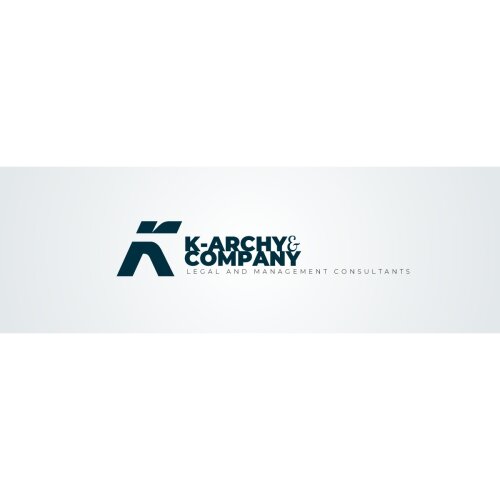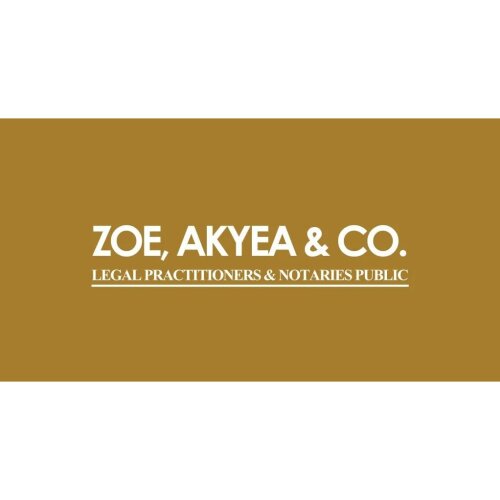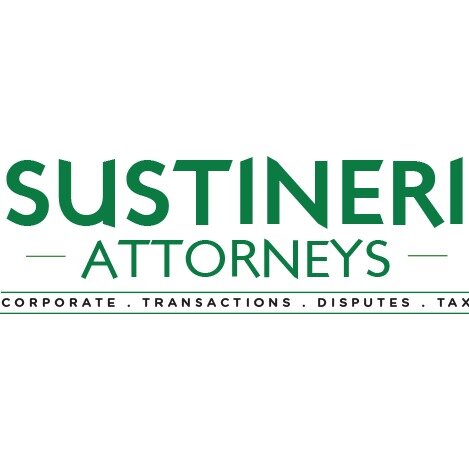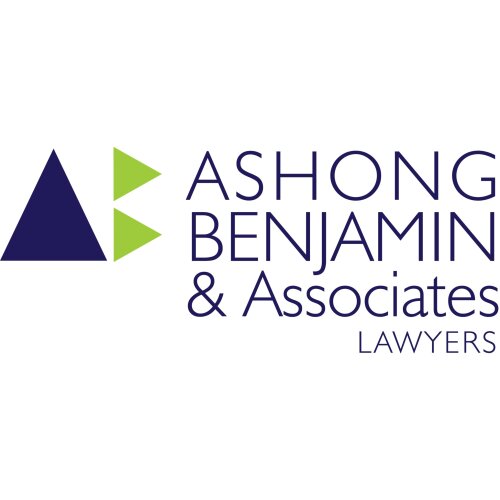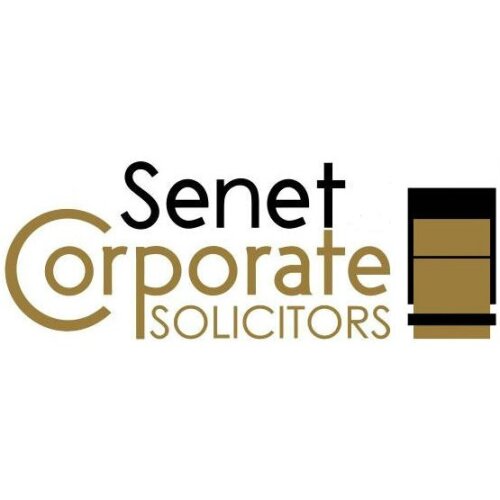Best Project Finance Lawyers in Accra
Share your needs with us, get contacted by law firms.
Free. Takes 2 min.
List of the best lawyers in Accra, Ghana
About Project Finance Law in Accra, Ghana
Project finance in Accra, Ghana, involves the funding and development of large infrastructure and industrial projects, such as power plants, transportation networks, and telecommunication facilities. Unlike traditional financing, project finance relies on the projected cash flows of the completed project for repayment, with the project's assets, rights, and interests held as collateral. This model requires sophisticated legal structuring due to its complexity and the involvement of multiple parties, including sponsors, lenders, and governmental entities. Accra, as Ghana’s capital and business hub, is the focal point for many such deals, with both local and international investors participating in sectors like energy, oil and gas, mining, and infrastructure.
Why You May Need a Lawyer
Due to the multifaceted nature of project finance, seeking legal assistance is highly advisable. Common scenarios in which legal help is necessary include:
- Drafting and negotiating investment agreements between sponsors, lenders, and contractors.
- Managing relationships with government authorities, including compliance with regulatory approvals and permits.
- Structuring project finance deals to ensure favourable terms and adequate risk allocation among parties.
- Conducting due diligence on project feasibility, land titles, environmental compliance, and partner backgrounds.
- Resolving disputes over contractual obligations, performance guarantees, or cost overruns.
- Assisting with loan syndications and security documentation to protect stakeholders’ interests.
- Advising on tax implications, foreign exchange controls, repatriation of profits, and local content requirements.
- Ensuring the project meets the expectations of both Ghanaian law and international standards when foreign investors or lenders are involved.
Having expert legal support helps all parties better manage risks and increases the probability of project success.
Local Laws Overview
Ghana provides a relatively stable and investor-friendly legal environment for project finance. Some of the key laws and regulations you should be aware of in Accra include:
- The Companies Act, 2019 (Act 992): Governs company formation, operation, and accountability for sponsors and special purpose vehicles (SPVs).
- Contracts Act, 1960 (Act 25): Establishes the rules for valid contracts, which underpin project finance agreements.
- Banking Act and Financial Institutions Regulations: Outline the operation of financial institutions, loan syndications, and lender rights.
- Public Private Partnerships Act, 2020 (Act 1039): Provides the legal basis for collaboration between government and private sector on major projects.
- Land Use and Spatial Planning Act, 2016 (Act 925): Sets out requirements for land acquisition, zoning, and site permitting.
- Environmental Protection Agency Act, 1994 (Act 490): Provides environmental regulations, including environmental impact assessments (EIAs).
- Investment Promotion Act, 2013 (Act 865): Regulates foreign investment, incentives, and repatriation of profits.
Additionally, sector-specific laws in energy, mining, construction, and transportation often apply. Project sponsors and financiers need to ensure full compliance to avoid delays, penalties, or the invalidation of project agreements.
Frequently Asked Questions
What is project finance?
Project finance is a method of funding large-scale infrastructure and industrial projects by raising money primarily based on the project’s future cash flows and assets, rather than the balance sheet of project sponsors.
Who are the typical parties involved in a project finance transaction in Accra?
Typical parties include project sponsors (developers), lenders (such as banks and development finance institutions), contractors, operators, government agencies, and sometimes equity investors or export credit agencies.
What are the main legal documents required in a project finance deal?
Key documents include the loan agreement, security documentation, project agreements (such as construction contracts and supply agreements), shareholder agreements, and permits or licenses from authorities.
Do I need government approval for a project finance transaction?
Yes, most major projects require government approvals, including permits, licenses, and sometimes parliamentary approval, especially in sectors such as energy or transportation.
How can foreign investors participate in project finance in Ghana?
Foreign investors must comply with the Ghana Investment Promotion Act, which details requirements for registration, minimum capital, and the repatriation of profits. Involvement in certain sectors may come with additional local content or partnership requirements.
What is a special purpose vehicle (SPV) and why is it often used?
An SPV is a separate legal entity created to own and operate the project. It isolates the project’s assets and liabilities from the sponsors and simplifies legal structuring and risk management.
What risks do lenders consider in project finance in Ghana?
Lenders evaluate risks such as political and regulatory risks, construction delays, currency fluctuation, counterparty default, and environmental issues. Legal advice is crucial for identifying, allocating, and mitigating these risks.
Are there tax incentives for project finance investments?
Yes, certain projects may qualify for tax holidays, capital allowances, or duty exemptions under sector-specific laws or the Ghana Investment Promotion Centre regulations. Legal guidance is necessary to confirm eligibility and compliance.
What disputes typically arise in project finance, and how are they resolved?
Common disputes involve breach of contract, delays, defects, or financial defaults. These are resolved through negotiation, mediation, arbitration, or, if necessary, litigation before the Ghanaian courts.
How do I choose a lawyer for project finance in Accra?
Look for lawyers with experience in project finance, a strong understanding of local and international law, and a proven track record in similar sectors. Recommendations and participation in relevant professional associations can also be helpful indicators.
Additional Resources
If you need more information or assistance on project finance in Accra, consider reaching out to these resources:
- Ghana Investment Promotion Centre (GIPC) - For investment regulations, approvals, and incentives.
- Ministry of Finance - For government-backed projects and public private partnership guidance.
- Registrar General’s Department - For company incorporation and registration of special purpose vehicles.
- Ghana Bar Association - To find qualified legal professionals.
- Ghana Environmental Protection Agency - For information on environmental compliance and permits.
- Professional bodies such as the Ghana Chamber of Commerce and Association of Ghana Industries for sector insights.
Next Steps
If you are considering a project finance transaction or investment in Accra, Ghana, begin by outlining your project’s objectives and stakeholders. Gather all preliminary information, such as business plans, budgets, and potential partners. Consult an experienced project finance lawyer who understands local Ghanaian laws and industry best practices. The lawyer can assist in structuring the deal, conducting due diligence, and ensuring legal compliance throughout the project lifecycle. For complex or cross-border projects, engaging a multidisciplinary team with finance, engineering, and regulatory experience is advisable. Remember to maintain clear communication with authorities, comply with all licensing and environmental requirements, and document every agreement thoroughly to safeguard your interests. Taking these steps will help set your project up for successful financing and execution in Accra.
Lawzana helps you find the best lawyers and law firms in Accra through a curated and pre-screened list of qualified legal professionals. Our platform offers rankings and detailed profiles of attorneys and law firms, allowing you to compare based on practice areas, including Project Finance, experience, and client feedback.
Each profile includes a description of the firm's areas of practice, client reviews, team members and partners, year of establishment, spoken languages, office locations, contact information, social media presence, and any published articles or resources. Most firms on our platform speak English and are experienced in both local and international legal matters.
Get a quote from top-rated law firms in Accra, Ghana — quickly, securely, and without unnecessary hassle.
Disclaimer:
The information provided on this page is for general informational purposes only and does not constitute legal advice. While we strive to ensure the accuracy and relevance of the content, legal information may change over time, and interpretations of the law can vary. You should always consult with a qualified legal professional for advice specific to your situation.
We disclaim all liability for actions taken or not taken based on the content of this page. If you believe any information is incorrect or outdated, please contact us, and we will review and update it where appropriate.




